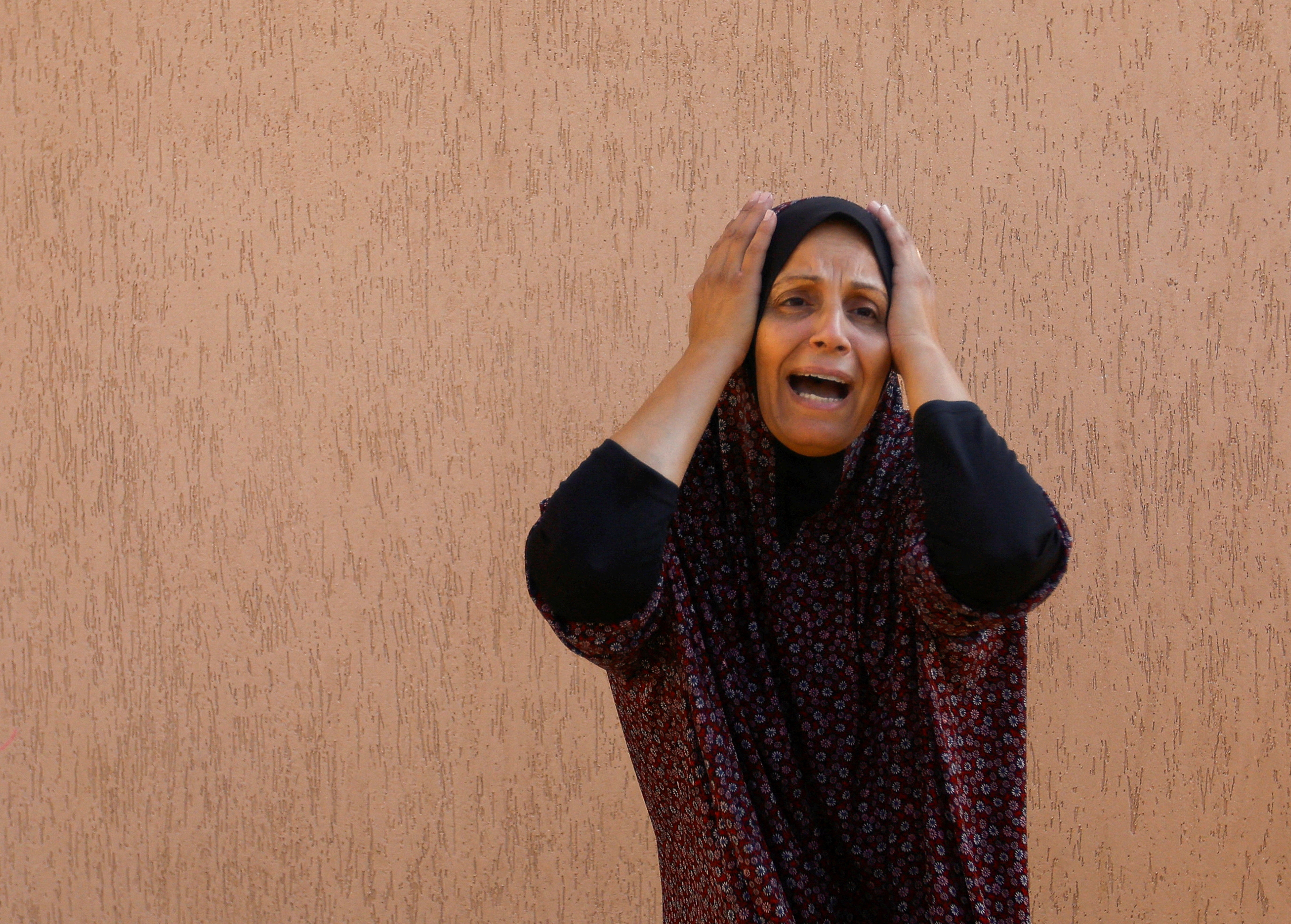The world cannot give up on the two-state solution
Editorial: Britain has a part to play on the international stage, keeping alive the hope that the cycle of injustice and violence in Israel can be broken

The sense of foreboding about what will happen in Gaza is overwhelming. Nothing good can come out of the horror of the attack by Hamas on Israeli civilians. Nothing good was ever likely to come out of the suffering of the Palestinian people.
However far back one goes, it seems that people in the Palestinian occupied territories were responding to earlier injustices. And however much we might try to look to the future, there seems no end in sight to the cycle of violence.
There have been hopeful moments in living memory. The Camp David accords signed by Israel and Egypt in 1978, the incomplete Oslo accords of 1993, and even the unilateral Israeli withdrawal from Gaza in 2005 pointed towards the brighter possibility of mutual coexistence. But the hopeful moments have always been overshadowed by the awful logic of retribution and mistrust.
It is no wonder that the theme of many responses around the world to the latest atrocities is one of pessimism and powerlessness. What can we do, we ask ourselves in Britain, in the rest of Europe and in America? The British government has done what it can. It has condemned Hamas’s terrorism. It has urged restraint on the Israeli government.
But it should do more. Not because Britain has a historic responsibility for the region, having played a role, mostly reluctantly, in the creation of the state of Israel during the uneven withdrawal from empire after two world wars. And not because Britain has some magic solution. Tony Blair may have thought that his role in securing a settlement in Northern Ireland meant that he had a unique ability to mediate, but by the time he tried, as the envoy of the Quartet group of Middle East mediators, after he stepped down as prime minister in 2007, his misjudgement in the Iraq war had caught up with him.
Yet Britain still has a part to play. It can help to lead calming, responsible efforts to return to the only model that is likely ever to work, which remains the two-state solution. It was what the United Nations intended in 1948, and it has been the basis of every attempt at a settlement since: that a secure Israel must share territory with a viable Palestinian state.
This is unrealistic, the voices of learnt helplessness tell us. The moment has passed, they say. But it is not necessarily so.
The Hamas attack on Israel, whatever else it does, warns of the unsustainability of a situation that rests on the indefinite immiseration of the Palestinian population.
Many of the Israeli people know this. Many Palestinians know it, too: it is no coincidence that Hamas has abolished elections in Gaza. Even as both sides are braced for war, there is a desire for peace.
We know what the answer could be, and it has not changed. The people of Gaza and the West Bank have to become significantly more prosperous. Mr Blair understood that, although there was too little he could do to bring it about. The conditions in which Palestinian terrorism grows, out of desperation, injustice and the absence of hope, have to be ameliorated. Tough on terrorism, tough on the causes of terrorism, if you like.
This may seem near impossible now, and the actions of the Israel Defence Forces over the next few days and weeks are likely to make it more difficult. But the British government, and all leaders of the international community, have a responsibility to keep the flame of hope alive.
Join our commenting forum
Join thought-provoking conversations, follow other Independent readers and see their replies
Comments



Bookmark popover
Removed from bookmarks